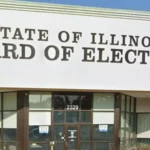
Recently, the Supreme Court rejected a challenge to South Carolina’s new redistricting plan in Alexander v. South Carolina State Conference of the NAACP. The South Carolina Republican-controlled legislature approved a new congressional map in 2022 which the NAACP and other civil rights groups alleged constituted unconstitutional racial gerrymandering. The Supreme Court ruled 6-3 in favor of Alexander and the South Carolina legislature, along conservative-liberal lines. The Court held that the challengers had failed to conclusively prove the consideration of race motivated the South Carolina legislature when it implemented a redistricting plan moving black voters out of the state’s First Congressional District.
Writing for the majority, Justice Alito emphasized that race and politics can often be congruent in such cases, with maps gerrymandered to achieve partisan ends sharing many similarities to those gerrymandered along racial lines.
The First District of South Carolina formerly included the coast along with downtown Charleston, excluding North Charleston, and was held by democrat Joe Cunningham from 2019-21. In 2022 Cunningham lost reelection to Congresswoman Nancy Mace by a very slim margin, barely over a single point. South Carolina Republicans then redrew the map to marry North Charleston and Charleston to the Sixth District, with the rest of Charleston County remaining in the First District. Mace won reelection in 2022 by a whopping 14 points. In a case from 2019, Rucho v. Common Cause, the Supreme Court held that advantageous redistricting for a specific political party can be interpreted as unconstitutional; however, it is a political question rather than a legal one which is a non-justiciable question. In Moore v. Harper, the Supreme Court rejected the independent state legislature theory. That theory stated that state legislatures had sole authority to regulate federal elections within their borders without interference from the judiciary or governors. Harper established that state courts can rule on these political questions of redistricting, though they could not go beyond typical judicial review to do so. The lower court’s initial ruling ignored these Supreme Court rulings in its review and holding in this case, which the Court reprimanded in its opinion.
In dissent, Justice Kagan, writing for Justices Jackson and Sotomayor, argued this decision conflicted with Cooper v. Harris, another racial gerrymander case which was decided in the opposite direction, but in which Justice Alito dissented. Justice Kagan argued the ruling in Alexander unfairly “stack[ed] the deck” against the plaintiffs and incentivizes other state legislatures to create racially gerrymandered maps to strengthen their political power.
Because the Supreme Court remanded the case in part, the issue remains unresolved, especially because the lower court is filled with liberal appointees. South Carolina, however, will hold its congressional primaries on June 11, and they have been authorized to use the map. Regardless of the lower court’s future decisions, South Carolina will proceed with the new maps for this year.
SUPPORT LANDMARK LEGAL FOUNDATION
We are truly facing existential threats to our individual rights and liberties, the Constitution, and our national character. If unchallenged, this assault on our very way of life will ruin our great nation. With your financial and moral support, Landmark is not going to let that happen without a fight. Will you join us?
JOIN OUR MAILING LIST
Never miss an update from Landmark Legal Foundation as we continue the fight to preserve America’s principles and defend the Constitution from the radical left.
Landmark will NEVER share your contact information and we will not flood your inbox.





